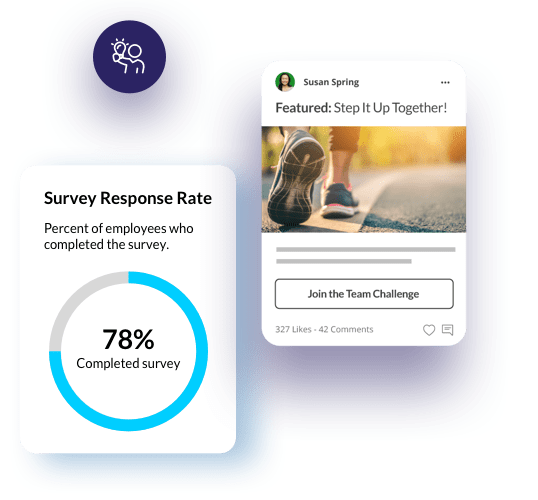Blog Post
Stress Awareness Month: Tips to Help Employees Cope With Stress

Explore more in Mental Health

Blog Post | Employee Well-Being
Why businesses need to take a holistic approach to wellness
In this guide, we provide an overview of holistic wellness programs, explain why they're so helpful for employers and offer tips for creating a holistic wellness program of your own.

Blog Post | Workplace Burnout
Employee burnout statistics for 2023
Discover these employee burnout statistics for 2023 and learn more about the quiet trend putting so many businesses and workers at risk.

Blog Post | Workplace Burnout
Preventing healthcare worker burnout: A critical task for healthcare executives
Learn about healthcare worker burnout and how it's up to healthcare executives to prevent burnout in the workplace.

Blog Post | Mental Health
How to support mental health in the workplace
Learn about the business impact of emotional wellness in the workplace, and get 6 strategies to improve mental health at work.
Explore more blog posts from this author

Blog Post | Employee Well-Being
6 Steps to develop an effective wellness incentives and rewards plan
To create a successful wellness incentive program, it’s crucial to understand that it takes a thoughtful approach of both intrinsic and extrinsic rewards for employees.

Blog Post | Employee Communications
4 ways HR leaders can use employee communications to support well-being and engagement
Learn how employee communications that reach the right person at the right time with the right message improve well-being and engagement.

Blog Post | Employee Well-Being
How to improve employee well-being
In today’s world of work it's essential to understand how to improve employee well-being. Get our top 5 tips you can put into action today.

Blog Post | Product Updates
LimeTime session recap: The Manager Experience: Empowering Your Essential Leaders
Learn why managers are essential for unlocking your organization's true potential in increasing employee engagement and reducing turnover.




